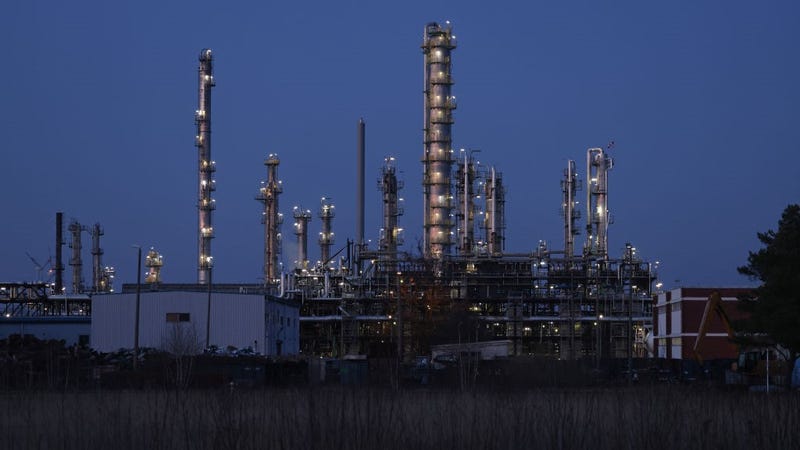
As gas prices in the United States continue to fluctuate after President Joe Biden banned all imports of Russian oil, a number of European countries are preparing for similar actions against Russia.
Poland Prime Minister Mateusz Morawiecki said on Tuesday that the country will end all Russian oil imports by the end of 2022, while Germany began to issue emergency plans with growing concerns their gas deliveries from Moscow could be stopped, according to the Associated Press.
"We are presenting the most radical plan in Europe for departing from Russian oil by the end of this year," Morawiecki said.
Germany’s Ministry for Economic Affairs and Climate Action issued an emergency gas plan warning, according to The Washington Post. It's the first of three potential warnings, which become more and more strict, making it so only places like hospitals would receive the gas they need to operate.
Germany also set up a crisis team to look over their gas supply, and asked people to do what they can to limit their gas usage.
"We are in a situation where, I have to say this clearly, every kilowatt hour of energy saved helps," Economy Minister Robert Habeck said, per NPR. "And that's why I would like to combine the triggering of the warning level with an appeal to companies and private consumers to help Germany, help Ukraine, by saving gas or energy as a whole."
Habeck explained the situation and said that Russia wanted its gas deliveries to be paid in rubles.
"There have been several comments from the Russian side that if this (payments in rubles) doesn’t happen, then the supplies will be stopped," Habeck said.
Russian President Vladimir Putin spoke to German Chancellor Olaf Scholz on the phone and said that European contracts with Russia won't have to be paid in rubles.
Germany is heavily dependent on Russia for its energy, relying on them for 40% of its natural gas and 25% of its oil.
"On average we in Germany imported 55% of our gas from Russia in recent years, and this has now already gone down to 40%," Habeck said.
The European Union is also aiming at eliminating all Russian gas imports before 2030, with a short-term goal of cutting their imports by two-thirds by the end of the 2022. Both Poland and Germany have signed deals with suppliers of LNG, liquefied natural gas, as an alternative source of gas.

